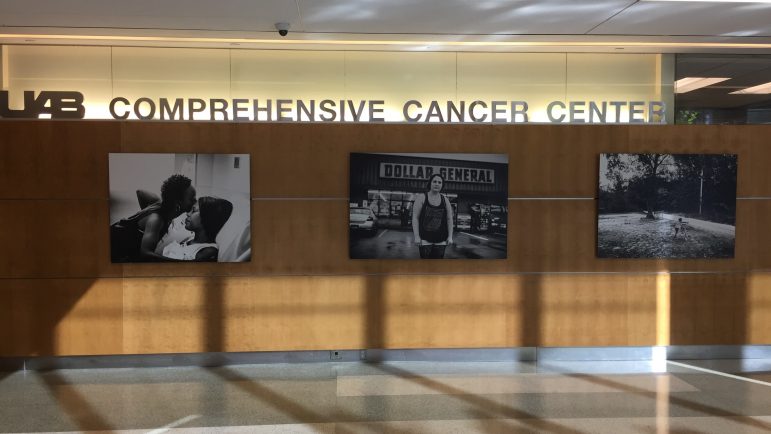Precision medicine is changing the way doctors treat people with cancer. It’s an emerging field that is sometimes referred to as “personalized medicine.” That’s because treatments are tailored for specific patient traits. Many observers say UAB is particularly well-positioned to lead the targeted therapy front. That’s the subject of the cover article in Friday’s Birmingham Business Journal. Editor Ty West talked with WBHM’s Andrew Yeager.
Interview Highlights
What precision medicine is:
“In terms of cancer care, this is a very precise form of medicine that depends a lot on the human genome and the sequencing that’s happened in recent years. It basically allows you to develop a personalized plan of care based on a patient’s DNA. This is an area that’s grown exponentially really over the past five or six years and it is an area that many believe is going to be the next frontier in medicine overall, but particularly in terms of cancer care.”
Why UAB is positioned to ride this new technology:
“They’ve already kind of been at the forefront. They’ve made some strategic hires. If you look back over the past five or six years, they’ve hired some leading experts in precision medicine and genomic medicine, so that’s one reason. If think if you look at Alabama also and our health situation here in the state, experts have told us over the years that also creates some opportunities from some interesting clinical trials. A lot of groundbreaking cancer research can be done and that’s unfortunate for our community that we’re faced with some of those chronic health challenges, but it does create opportunities to change the world here in Birmingham.”
What the university plans to do:
“They want to do a $70 million genomic medicine building. That would be a wholesale renovation of an existing building. They’re approaching this like an economic development project, not like another building at UAB’s campus. They believe with a facility like this that could be kind of a leading global facility, it’ll make it easier to recruit researchers here. And every one of those researchers are kind of like a small business. They have staffs. They have million dollar budgets that are coming in. That’s bringing money into this community. But perhaps more importantly, it’s creating the opportunity to create more jobs down the road in terms of commercialization, in terms of spinning off some startups.”

